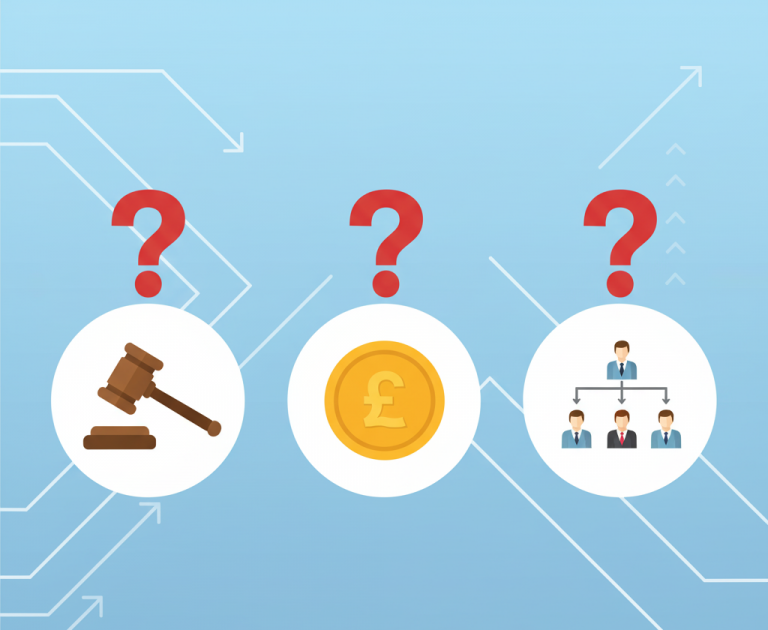In the process of buying a car, choosing one that best meets your requirements, is the only, almost, fun part. Once you have decided, the question arises, how can you get and manage the finances to buy/rent it. We get frequently asked by our clients, if they can lease a car through their limited company. In this article, we’ll discuss in detail, all that you need to know about leasing a car through your limited company.
Basic question, Can I lease a car through my limited company?
Quite simply, Yes, you can. Business Leasing (commonly known as BCH or business contact hire), is a long-term rental option, typically lasting around a term of 24-60 months, whereby you pay a fixed monthly amount to rent the vehicle for the duration. You hand the car back to the finance provider, at the end of the agreement period. However, this is something we would not recommend as given the amount you pay in BIK it generally works out not to be worthwhile. Also to be able to class a car as a company car HMRC has very strict rules around this such as the car would need to stay at the business premises and not be used for any personal use.
Would I have to pay any car tax?
Leasing a car through a limited company, whether for business or private use, you would have to pay what is known as BiK or Benefit in Kind tax/ Company car tax. HMRC classes leased vehicles as part of your business income.
What is Benefit in Kind (BiK)/Company Car tax and how do I calculate it?
Benefit in Kind is a non-cash benefit which has monetary value through your own company or as an employee from your employer. And because it has monetary value it comes under taxable income.
Company Car Tax/BiK that you need to pay depends on the following;
- The P11D value
- Your vehicles CO2 emissions
- Your Personal Income Tax bracket
Basic formula to calculate the company car tax you owe would be;
- (P11D value x CO2 emissions band) x Personal Income Tax Bracket = annual company car tac.
Let’s break the above formula down for better understanding:
1) P11D VALUE x CO2 BASED TAX BAND = BIK AMOUNT
2) BIK AMOUNT x INCOME TAX RATE = COMPANY CAR TAX AMOUNT
A car with a lower P11D value and low emissions can significantly reduce the amount of company car tax to be paid.
What is P11D value?
The P11D value is the list price (different from actual road price) of a car including VAT and any delivery charges. Any additional options fittings to the car will be included in the list price. It does not include the first registration fee or road tax. Let’s take a scenario to give you a better understanding on how to calculate P11D Value:
Vehicle Road Price = £16,999
Vehicle List Price = £15,700 inc. VAT
Vehicle Delivery Price = £550
Annual Road Tax =£145
First Registration Fee = £55
P11D value of the vehicle can be calculated as = £16250 (List price + Delivery charges)
What are Co2 Emissions and their tax band?
The impact on the percentage of tax you’ll be charged for Co2 emissions, weighs heavily on the type of fuel the car you select runs on. The more Co2 emissions your car produces per km, the higher or lower the Bik Tax. Higher Co2 your car emits, higher company car tax you pay and vice versa). Going green comes with better benefits.
Here’s how the percentage is worked out:
You can check a car’s CO2 emissions fuel consumption and tax bands here.
**add 4% up to a maximum of 37% for diesel cars that are not certified to the Real Driving Emissions 2 (RDE2) standard.
Let’s continue with the example given in calculation of P11D value above:
P11D value: £16250
Say, the car you’ve purchased emits about 60g/km Co2.
Co2 emissions band: 19%
P11D value x Co2 emission % = BIK AMOUNT
£16250 x 19% = £3087.5
Personal Income Tax Bracket
The amount of BiK/ company car tax you’ll end up paying is dependent on you annual income/salary. The current income tax bands for England, Wales and Northern Ireland for 2019/2020 are as follows:
If for example you fall in the in the 20% basic rate package, continuing from the scenario quoted above:
BIK AMOUNT x INCOME TAX RATE = COMPANY CAR TAX AMOUNT
£3087.5 x 20% = £617.5
Your company car tax comes out to be: £617.5
I have decided on the car I want, and calculated the company car tax on it, what now?
Next step, after you’ve decided to lease a car is deciding on how you want to finance it. Business Leasing (commonly known as BCH or business contact hire), is a long-term rental option, typically lasting around a term of 24-60 months, whereby you pay a fixed monthly amount to rent the vehicle for the duration. You hand the car back to the finance provider, at the end of the agreement period.
Monthly costs of BCH are calculated by taking a few contributing factors into account, such as;
- Value of the vehicle
- Residual Value of the Vehicle
- Interest rate
- Mileage
- Term of contract
- Deposit
The leasing company takes into account foremost the residual value of the vehicle you wish to lease after taking out the depreciation. Which is why, you would need to adhere to a strict mileage cap. If you exceed the agreed upon mileage, you would have to pay penalty for each extra mile driven at the end of term.
Monthly installments are determined on the term of contract you have agreed upon, ranging from 12 month up to 5 years .The deposit upfront you make at time of contract, also determines your monthly payable. The more you pay up front, the less you pay over the term, meaning a lower monthly rental.
Simultaneously, value of the vehicle you have chosen is also a factor, low value vehicles would result in lower monthly installments, but co2 emissions have to be taken into account if you wish to keep the expense low.
What are the benefits of Business Contract Hire?
Initial rental is determined by you, you can put down how much or little as you please.
Monthly payments are set, you get to use the vehicle for whatever duration and mileage that will fit your needs
Whether it is servicing, maintenance or replacement, for an additional monthly fee, you can turn over the responsibility to the leasing company to take care of nearly every hassle associated with vehicle ownership.
BCH is the most cost effective way to have a running fleet of cars for your business. You don’t need to tie up a big amount of capital on an asset and worry about its depreciating value. Instead you can invest that capital in other business growth needs.
Typical contract hire agreements run between 12 – 48 months, which gives your company the flexibility to respond to the changing business environment. You can adjust more efficiently to changing scenarios.
If you lease a vehicle for commercial use, you care looking at claiming back 100% VAT, and even if you use your car partially as a private vehicle you still stand a chance of claiming 50% of the VAT.
What are the considerations of BCH?
- Early termination can be expensive
- Excess mileage charge is payable if you exceed the agreed mileage, as set at the start of your contract.
- Any damage over and above that stated in the Fair Wear and Tear Guide will be subject to additional charges, hence the vehicle must be returned in a good condition.
- Vehicle must be insured with full comprehensive cover
- No option to buy the vehicle and you can never own it.
What do I need to take out a business contract hire?
Eligibility varies depending on which company is providing the finance for the lease, but generally you must meet the following criteria:
- Be a sole trader, partnership, Ltd or PLC;
- Have trading history of at least three years with bank statement and accounts;
- Produce proof of address and proof of ID for the company director;
- Pass a credit check.




















